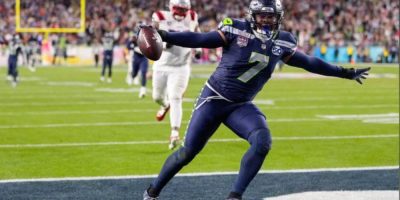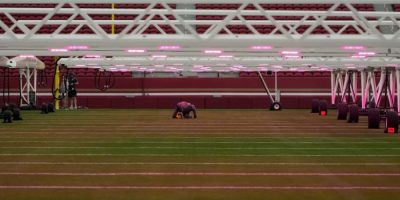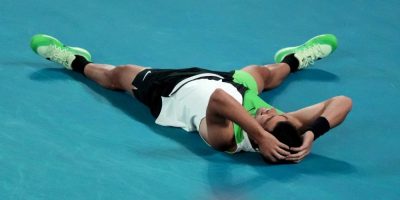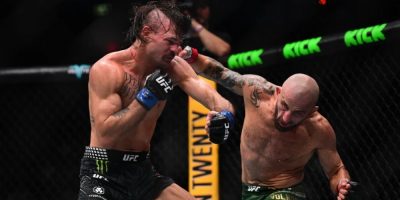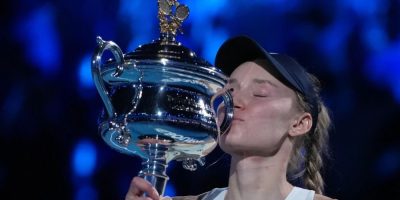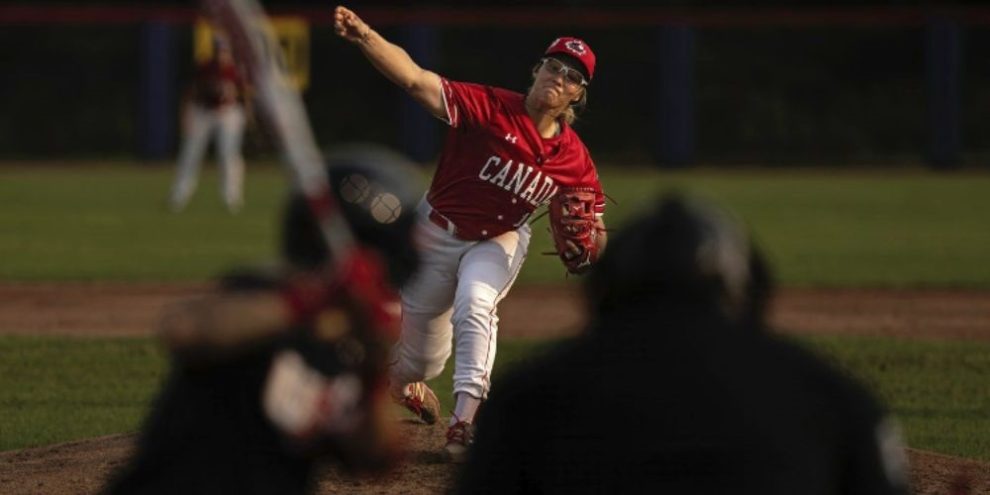
For nearly every highlight of Julie Croteau's trailblazing baseball career — all except her time as a double in “A League of Their Own,” really — she shared the field with men. Frequently as teammates. Always as foes. That's mostly how it's been for generations of female players.
So when she recently heard about plans to give today's players the chance to shine against other women in baseball, Croteau had one thought.
“It’s about time,” she said with a chuckle.
The Women's Professional Baseball League (WPBL) announced plans last month to launch in 2026 as a six-team circuit for female players. If and when it debuts, it will be the first pro league for women since the All-American Girls Professional Baseball League — the one immortalized in “A League of Their Own” — dissolved in 1954.
Heightened interest in women's sports in recent years made this an ideal time to launch a women's baseball league, said co-founder Justine Siegal, the first woman to coach for an MLB team with the Oakland Athletics in 2015.
The consulting firm Deloitte estimated that women's sports will generate a billion dollars in global revenue in 2024 for the first time because of skyrocketing popularity and marketing deals. The WNBA had its most watched regular season in 24 years thanks largely to its star rookie class led by Caitlin Clark and Angel Reese. The inaugural season of the Professional Women’s Hockey League brought in record crowds.
Barrie's News Delivered To Your Inbox
By submitting this form, you are consenting to receive marketing emails from: Central Ontario Broadcasting, 431 Huronia Rd, Barrie, Ontario, CA, https://www.cobroadcasting.com. You can revoke your consent to receive emails at any time by using the SafeUnsubscribe® link, found at the bottom of every email. Emails are serviced by Constant Contact
“Certainly we’re standing on the shoulders of the success of the other pro leagues,” Siegal said.
Siegal has sought advice from women leading other professional leagues and is studying what made them successful. That includes catering to the specific needs of female athletes — who often face a different set of responsibilities than their male counterparts.
Siegal was the first woman to coach for a professional baseball team with the independent league Brockton Rox in 2009, and the first woman to throw batting practice to an MLB team with Cleveland during spring training in 2001.
Back then, Siegal remembers scrambling to find babysitters for her daughter while she coached, and pulling her daughter out of school and bringing her along to the field in some cases.
“I had to do many things to make my dream come true,” Siegal said. “And so I am particularly keen on making sure that we don’t overlook mothers who can compete and deserve a place in the league.”
When she was 13, a coach told Siegal she shouldn't play baseball because she was a girl. She was told to play softball, which is a reality many girls in the sport face.
Around 1,300 high school girls played baseball on boys teams across the United States during the 2023-24 school year, according to a survey done by the National Federation of State High School Associations.
“When I see that number, I think that there’s 1,300 people who had to sort of basically buck the system to keep playing the sport that they love,” said Croteau, who made headlines in the 1980s by suing her high school for the right to play on the boys varsity team. She lost.
“They’ve had to stare down an athletic director or approach a baseball coach, and they’ve had to make it happen.”
More than 471,000 high school boys played baseball, while 473,000 girls played softball. The NCAA doesn't offer women's baseball, but nine women played on men's baseball teams in 2024, according to the NCAA's demographics database. Around 21,000 women played college softball.
Keith Stein, a lawyer and businessman who co-founded the WPBL with Siegal, said the hope is to help establish a solid women's baseball culture in the U.S. to create more playing opportunities for girls in the future.
Both Stein and Siegal pointed to early interest from women's baseball players as clues to the hunger for a venue for women to compete against women at the highest level. While there hasn't been a pro league for women's ballplayers, they still play. The Women's Baseball World Cup debuted in 2004 to showcase women's talent.
More than 400 athletes registered to try out within 24 hours of the league launching its player portal, Siegal said.
“These were largely elite players,” Stein added. “Some of the best players in the world — from the United States, of course, but there were players from Japan, Canada, Great Britain.”
The league will hold a scouting camp in spring 2025, with a draft happening in the last quarter of the year. The WPBL will initially launch with six teams, though Stein estimated that number could later increase to eight. They'll compete in the northeast in 2026 so that they can travel by bus to compete.
While Stein expects the WPBL to become one of the major women's sports leagues in the near future, it won't get there without facing some of the same barriers as the women's leagues that preceded them.
Women athletes have long fought to be paid as much as their male counterparts, perhaps most prominently displayed through the U.S. women's national soccer team's fight for equal pay that ended in the U.S. House passing an equal pay bill in 2022.
“We shouldn’t gloss over a certain reality," Stein said. "And that reality is that women baseball players, they probably are not being paid what they deserve."
Stein said he believes compensation will be suitable for players hoping to participate in the league, including those who have to relocate from different countries or leave their current jobs.
“But it will pale compared to if you’re thinking of what major league athletes in some of the other leagues are making,” he added. "That’s not what’s in place right now.
“We will get there because of what we do. We will raise the bar for pro women baseball players. But it will be gradual over several years.”
Croteau, who isn't connected to the WPBL, praised the league for trying to bridge the gap that has existed since long before she and teammate Beanie Ketcham were believed to be the first women to play in an MLB affiliated minor league in the now defunct Hawaiian Winter League 30 years ago.
“The girls who are out there playing on their own,” Croteau said, “those 1,300 girls that we’re talking about now, who we knew were good enough because they’re making the team. We also know they’re strong willed. They’re willing to buck the system and make it happen.
"This helps them get seen.”
